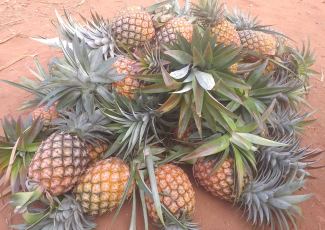FILTER
Displaying 861 - 870 of 2428 publications
Highlights Studies assessing households' vulnerability to floods significantly ignore the element of underestimation. The concept of “Perceived Vulnerability” enhances the value of assessing flood…
| Peer Reviewed | Ghana
This paper analyzes the socio-economic correlates of multiple child deprivations in Kenya using the 1993–2014 KDHS. Conventionally, child well-being is examined from the perspective of income poverty...
| Peer Reviewed | KenyaExposure to risk may be seen as one of the many dimensions of poverty. Household exposure to risk consequent upon different types of shocks often leads to undesirable welfare outcomes. A shock can…
| Peer Reviewed | NigeriaThis article aims to identify the mechanism of how climate change affects agriculture through various channels and the mechanism of longer-run adaptation. Using a county-panel dataset spanning the…
| Peer Reviewed | ChinaThis study examines the wood trade in response to China's new logging ban policy in natural forests (LBNF). Our identification is based on a triple-difference (DDD) strategy, in which the variations…
| Peer Reviewed | ChinaThis study uses “big” data to empirically investigate a highly effective, but underexamined way of reducing one’s exposure toward air pollution—short-term travel. We determine subscribers’ locations…
| Peer Reviewed | ChinaAbstract A growing set of researchers and policymakers argue, somewhat counterintuitively, that regulated timber extraction can help conserve forests in developing countries by discouraging illegal…
| Peer Reviewed |Using experiments in which participants play the role of polluting firms, we study compliance behavior with emissions limits under two types of fines and two different regulatory instruments. We find…
| Peer Reviewed | ChileAbstract As a discipline, environmental peacebuilding “integrates natural resource management in conflict prevention, mitigation, resolution, and recovery to build resilience in communities affected…
| Peer Reviewed | ColombiaTo adapt is to survive. However, sub-Saharan Africa, although highly dependent on agriculture, is vulnerable, most affected, with low-adaptive capacity. Luckily, the region is blessed with inherent…
| Peer Reviewed | Tanzania
